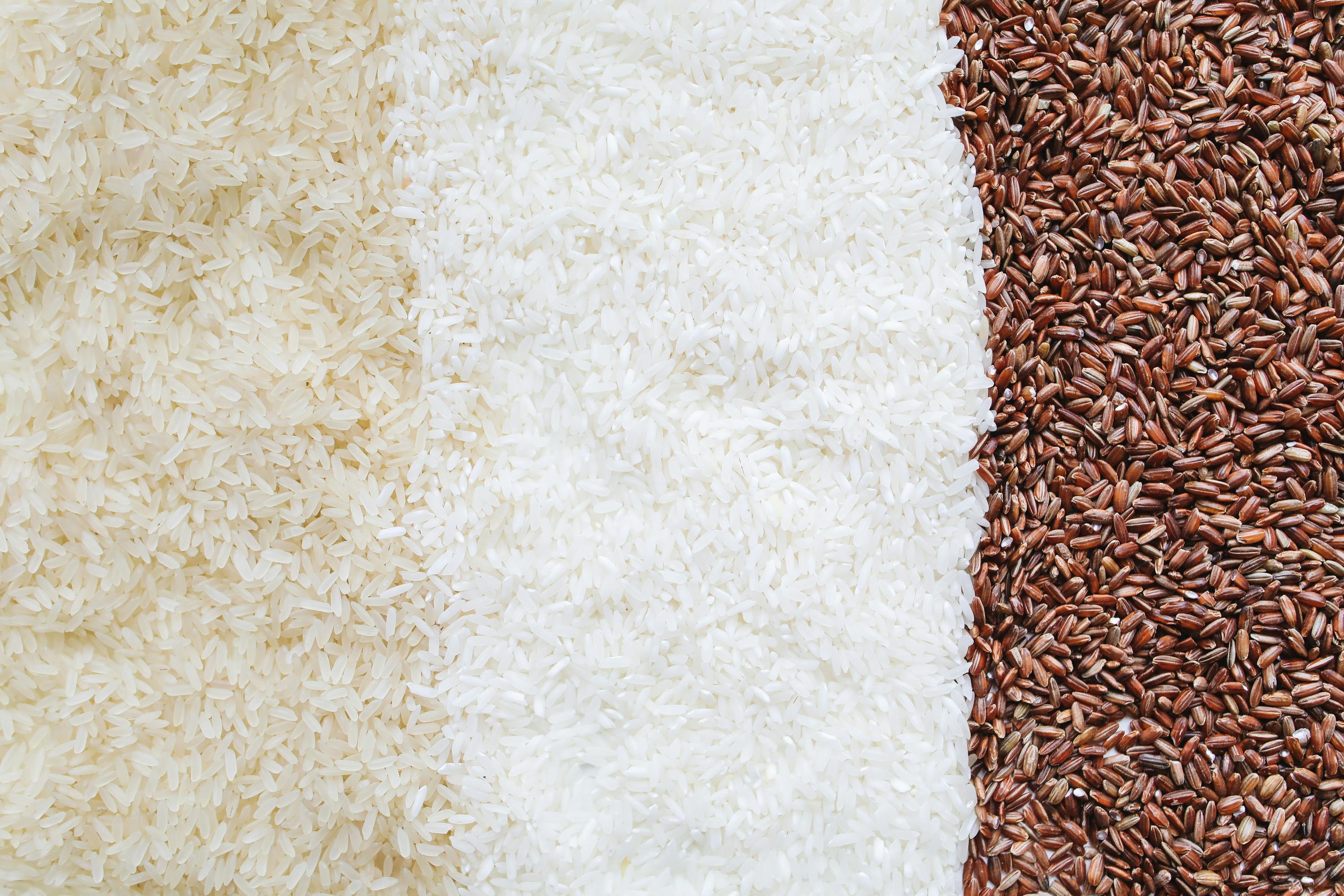
Essential Guide to Maintaining a Balanced Diet
A nutritionally balanced diet is crucial for overall health and well-being. It encompasses a diverse range of foods to provide adequate amounts of essential nutrients, including carbohydrates, proteins, fats, vitamins, and minerals. These nutrients are vital for numerous bodily functions, from energy production to immune support. Additionally, maintaining a balanced diet contributes to long-term health benefits, such as weight management and disease prevention. This comprehensive guide will explore the various food groups, portion control strategies, and healthy eating habits that can help anyone enjoy a nutritious lifestyle.
Throughout this article, you will learn about the significance of different macronutrients and micronutrients, how to incorporate a variety of foods into your meals, and effective meal planning techniques. Additionally, we will provide expert tips to ensure your dietary choices align with your personal health goals.
The key takeaways encompass the importance of hydration, understanding food labels, and the benefits of including whole grains, lean proteins, fruits, and vegetables in your diet. Now, let's delve deeper into the components of a balanced diet that contribute to lifelong wellness.
Understanding the Food Groups in a Balanced Diet
Building on the foundation of a balanced diet, it’s essential to grasp the different food groups that contribute to overall nutrition. Proper knowledge of these groups will enable you to make informed food choices that align with your dietary needs.
Carbohydrates: The Primary Energy Source
Carbohydrates are often referred to as the body’s primary energy source. They are divided into simple and complex carbohydrates. Simple carbohydrates, such as sugars found in fruits, offer quick energy, while complex carbohydrates, including whole grains, provide sustained energy release over time. Including a variety of fiber-rich carbohydrates also aids digestion and promotes gut health.
Proteins: Building Blocks of the Body
Proteins are essential for growth, repair, and maintenance of body tissues. They are made up of amino acids, several of which are crucial for various biological processes. Lean protein sources such as poultry, fish, beans, and nuts should be integrated into meals to meet daily protein needs. For those following vegetarian or vegan diets, it is vital to choose plant-based protein sources to achieve a balanced intake.
Fats: Essential for Health
Healthy fats serve numerous functions in the body, from hormone production to nutrient absorption. It is important to focus on incorporating unsaturated fats found in avocados, olive oil, and nuts, while limiting saturated and trans fats commonly present in processed foods. Balancing fat intake promotes heart health and can assist in weight management.
With a clear understanding of the food groups, the next step includes practical implementation and daily meal planning strategies.
Effective Meal Planning Strategies for Better Nutrition
With these basics established, effective meal planning plays a pivotal role in achieving and maintaining a balanced diet. Thoughtful planning helps ensure that you consume adequate nutrients while adhering to portion control guidelines.
Creating Balanced Plates: Portion Control Simplified
Implementing the concept of balanced plates simplifies portion control. Limit your plate to half fruits and vegetables, with one-quarter dedicated to lean proteins and the remaining quarter to whole grains. This visual approach aids in maintaining a nutritious balance during meals.
Incorporating Variety for Nutrient Diversity
Dietary diversity is essential for ensuring you receive a broad array of nutrients. Incorporate seasonal fruits and vegetables, along with proteins and grains, to enhance your meals. Experimenting with various cooking methods and food combinations also sustains interest in healthy eating while promoting nutrient absorption.
Mindful Eating: Building Healthier Habits
Mindful eating encourages individuals to focus on their meals, improving awareness of hunger cues and promoting healthier food choices. Take time to savor each meal, which can lead to improved digestion and satisfaction without overeating.
By mastering meal planning, you are well on your way to achieving a balanced diet that supports your overall health. Next, let’s explore the impact of hydration and the importance of micronutrients in our daily lives.
The Importance of Hydration in Nutrition
Connected to the discussion of food is the often-overlooked aspect of hydration. Adequate water intake is essential for maintaining bodily functions and optimizing nutrition.
Hydration and Nutrient Absorption
Water plays a critical role in the absorption of essential vitamins and minerals within the body. It facilitates nutrient transport and digestion, making hydration a key element in a balanced diet. Aim to drink sufficient water throughout the day, especially during meals, to support the digestive process and nutrient uptake.
Hydration Sources Beyond Water
While water is the best hydration source, various fruits and vegetables also contribute to fluid intake. Consider incorporating hydrating foods such as cucumbers, watermelon, and oranges in your meals and snacks for additional hydration support.
Recognizing Signs of Dehydration
It is crucial to recognize early signs of dehydration, such as dry mouth, fatigue, and unusual thirst. By maintaining hydration levels, you can enhance concentration, energy levels, and overall well-being.
As we move forward, let’s discuss the significance of vitamins and minerals, which play a dynamic role in maintaining energy balance and health.
The Role of Vitamins and Minerals in a Balanced Diet
Expanding on the core nutrients, understanding the role of vitamins and minerals is vital for overall health management. These micronutrients play numerous roles in bodily functions and energy metabolism.
Essential Vitamins: Important for Health
Vitamins, such as Vitamin C and B vitamins, are crucial for maintaining immune function and energy production. Incorporating a colorful variety of fruits and vegetables ensures adequate vitamin intake. Moreover, consider fortified dairy alternatives to meet your dietary restrictions while obtaining essential nutrients.
Minerals: Building Blocks of Well-being
Minerals like calcium, iron, and potassium contribute to various bodily functions, including bone health and muscle contraction. Including sufficient sources of minerals in your diet can aid in disease prevention and health maintenance. Pay attention to iron intake by integrating both heme (animal-based) and non-heme (plant-based) sources.
Nutrient Density: Selecting Foods Wisely
Opt for nutrient-dense foods that provide a higher quantity of vitamins and minerals relative to their caloric content. This approach focuses on whole foods while minimizing processed items that are often low in nutrition but high in calories. Educating oneself on food labels will promote smarter food choices.
As we assess the balance of vitamins and minerals, let’s turn our attention to the role of meal prepping in achieving consistent healthy eating habits.
Mastering Meal Prep for Healthy Eating
With a solid understanding of nutrition components, developing effective meal prep strategies can significantly streamline maintaining a balanced diet. Meal prepping offers countless benefits, from convenience to nutrition awareness.
Planning Ahead: A Key for Success
Building on meal planning, practicing meal prep for the week ahead can eliminate last-minute unhealthy food choices. Dedicate time at the beginning of the week to cook and portion out meals that align with your dietary plan. This ensures that nutritious meals are easily accessible while helping manage portion sizes effectively.
Variety in Meal Prep
Incorporate different recipes and cooking techniques to enjoy a range of flavors in your meal prep. Using seasonal produce, diverse proteins, and healthy fats will keep your meals exciting while ensuring nutritional diversity.
Healthy Snack Options as Part of Meal Prep
Include healthy snack options in your meal prep to maintain energy levels throughout the day. Preparing snacks such as vegetable sticks with hummus, yogurt with fruits, or pre-portioned nuts can support mindful eating and prevent unhealthy cravings.
In conclusion, successfully navigating a balanced diet involves understanding food groups, implementing effective meal planning, prioritizing hydration, and recognizing the importance of vitamins and minerals. By emphasizing meal prep, one achieves easier access to health-focused meals while ensuring adherence to nutritional guidelines.

Concluding Remarks on Healthy Eating Habits
As we wrap up this essential guide to balanced diets, it’s important to remember that adopting healthy eating habits is a lifelong journey. Among the critical elements of sustaining a nutritious lifestyle are continuous education about nutrition, recognizing individual dietary needs, and remaining adaptable to changing health goals.
Setting Personal Health Goals
Establish clear health goals that align with your dietary habits. Whether aiming for weight loss, muscle gain, or overall health, a personalized approach ensures sustainable progress. Regularly assess your eating patterns and adjust as necessary.
Awareness of Dietary Restrictions
Consider any dietary restrictions or food intolerances when planning meals. Numerous resources and alternatives are available to cater to specific needs, such as gluten-free grains or dairy substitutes. Adjusting recipes and being open to alternatives promotes inclusivity in meal choices.
Encouraging Family Involvement in Meal Prep
Involve family members in the meal prep process to encourage healthy eating habits within the household. Engaging children in cooking classes or grocery shopping can instill important nutritional knowledge and build enthusiasm around diverse food options.
With these healthy eating tips in mind, the road to a balanced diet becomes navigable, empowering individuals to make informed choices for their health and well-being.
